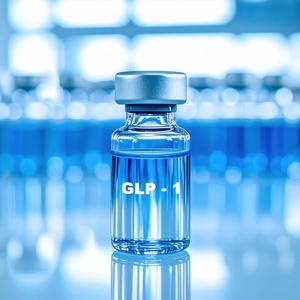Free-speech Protections May Alter Off-Label Promotions
The FDA has historically prohibited pharmaceutical companies from engaging in “off-label” promotion of its products. The Food, Drug, & Cosmetic Act also criminalizes misbranding by pharmaceutical companies. Misbranding occurs when a drug’s label does not provide instructions to allow for the safe use of intended indications. The FDA typically will not permit package inserts to provide information regarding off-label uses. Thus, the FDA interprets promotion of off-label uses as an intended indication and without these proper accompanying instructions, the action constitutes misbranding. Pharmaceutical manufacturers and their employees can be charged with misdemeanor and felony offenses and can be sanctioned with as much as three years’ imprisonment or a $10,000 fine.
While numerous pharmaceutical manufacturers have argued that this criminal prosecution violates their and their employees’ rights to free speech, the FDA has not altered its policy. Yet, the Second Circuit recently held that the FDA’s criminal prosecution of pharmaceutical manufacturers and their representatives for truthful, non-misleading speech promoting an FDA-approved pharmaceutical product unconstitutionally encroaches upon the First Amendment. U.S. v. Caronia, No. 09–5006–cr, 2012 WL 5992141 (2d Cir. Dec. 3, 2012).
The Second Circuit applied heightened scrutiny to the FDA’s prosecution and concluded first, that the government’s band did not directly advance its interest and second, that the government’s prohibition was not narrowly tailored to achieve its interest. The FDA claimed that its interest in the regulation was to promote the integrity of the approval process and limit the public’s exposure to unsafe or ineffective products. However, the Second Circuit reasoned that because physicians are allowed to prescribe approved drugs for off-label uses, the FDA’s ban did not limit off-label use or protect the public. Further, by stifling the flow of truthful communication, the FDA prohibition denied prescribers and patients important information about that product, including safety information. Finally, the FDA’s actions also were not narrowly tailored as the FDA could prohibit off-label uses, cap off-label prescriptions, or launch educational campaigns to achieve its interests more narrowly.
The FDA is expected to appeal the decision by either petitioning for en banc review by the Second Circuit or for a grant of certiorari by the Supreme Court. Until appellate options are exhausted, the FDA is unlikely to alter its regulations concerning off-label promotion. If the FDA is forced to change its regulatory scheme, pharmaceutical manufacturers will likely still need to be vigilant that communications could not be construed as “untruthful” or “misleading” to escape disciplinary action by the FDA.
related services

Weight Loss Wonders, Legal Woes: The Price of GLP-1 Popularity ...

AI-Enabled Medical Devices Here To Stay? ...
About Drug / Device Law Blog
Baker Sterchi's Drug / Device Law Blog examines topics and legal developments of interest to the drug and device industry. Learn more about the editors, Paul Penticuff and Megan Sterchi Lammert, and our Drug and Device practice.
Subscribe via email
Subscribe to rss feeds
RSS FeedsABOUT baker sterchi blogs
Baker Sterchi Cowden & Rice LLC (Baker Sterchi) publishes this website as a service to our clients, colleagues and others, for informational purposes only. These materials are not intended to create an attorney-client relationship, and are not a substitute for sound legal advice. You should not base any action or lack of action on any information included in our website, without first seeking appropriate legal or other professional advice. If you contact us through our website or via email, no attorney-client relationship is created, and no confidential information should be transmitted. Communication with Baker Sterchi by e-mail or other transmissions over the Internet may not be secure, and you should not send confidential electronic messages that are not adequately encrypted.
The hiring of an attorney is an important decision, which should not be based solely on information appearing on our website. To the extent our website has provided links to other Internet resources, those links are not under our control, and we are not responsible for their content. We do our best to provide you current, accurate information; however, we cannot guarantee that this information is the most current, correct or complete. In addition, you should not take this information as a promise or indication of future results.
Disclaimer
The Drug / Device Law Blog is made available by Baker Sterchi Cowden & Rice LLC for educational purposes only as well as to give you general information and a general understanding of the law, not to provide specific legal advice. Your use of this blog site alone creates no attorney client relationship between you and the firm.
Confidential information
Do not include confidential information in comments or other feedback or messages related to the Drug / Device Law Blog, as these are neither confidential nor secure methods of communicating with attorneys. The Drug / Device Law Blog should not be used as a substitute for competent legal advice from a licensed professional attorney in your state.














